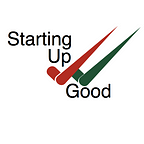Understanding the Unseen
Measuring Systems Change at #SkollWF 2024
Explore additional insights from our comprehensive conference coverage of the 2024 Skoll World Forum.
Social impact practitioners recognize the need to move beyond isolated interventions and work towards transforming entire systems. This Skoll World Forum session addressed the complexities of measuring systems change and featured insights from leading voices in the field, including John Kania (Collective Change Lab), Natasha Joshi (Rohini Nilekani Philanthropies), and Nivi Sharma (Bridges to Prosperity).
The conversation explored innovative methodologies and the critical importance of adaptability in measurement strategies. The speakers shared their experiences and challenges, shedding light on the practical aspects of influencing and measuring systems change within their organizations. The lively discussions led to a consensus on the necessity of embracing both qualitative and quantitative data, developing new frameworks for understanding change, and emphasizing broad stakeholder engagement, including communities directly impacted by these initiatives.
Key Takeaways
Understanding Systems Change
John Kania set the stage by introducing the “six conditions of systems change” framework. This model highlights the structural, relational, and transformational levels at which change must occur to shift the underlying conditions that perpetuate social problems. Kania emphasized that measuring systems change is inherently complex, involving multiple levels of impact, distributed actions, lag times, and cumulative results.
Innovative Measurement Approaches
The panelists highlighted two innovative approaches to measuring systems change. Outcomes harvesting, as described by Kania, involves collecting evidence of change and working backward to identify the contributions of specific interventions. System storytelling, on the other hand, brings together diverse perspectives to make meaning of the system through narratives, capturing the richness and nuance of change processes.
Natasha Joshi of Rohini Nilekani Philanthropies shared her organization’s efforts to map the spectrum of impact, from tangible to intangible outcomes and fast to slow timeframes of change. This framework, applied to both partners and the philanthropy itself, helps capture the multifaceted nature of systems change.
Implementer Challenges and Strategies
Nivi Sharma, CEO of Bridges to Prosperity, offered valuable insights from an implementer’s perspective. She highlighted the significant organizational culture shift required to move from a direct implementation mindset to a systems change approach. Sharma also noted the challenges posed by a lack of appropriate global indicators and data gaps in target areas.
To navigate these challenges, Bridges to Prosperity developed a strategy of breaking down systems change into measurable steps: direct implementation, support and influence, and catalyzing change. This approach allows the organization to track progress and communicate impact more effectively.
Funder-Implementer Dynamics
The session also explored the tensions that often exist between funders and implementers regarding systems change and measurement. Panelists emphasized the importance of demonstrating evidence and working in coalitions to influence governments and funders to support systems change work. They also called for patient capital that acknowledges the long timeframes required for systemic transformation.
Power, Inclusion, and Qualitative Evidence
A crucial theme that emerged was the need to directly address power dynamics and engage marginalized voices in systems change processes. Rigorous qualitative data, alongside quantitative metrics, is essential for understanding the complexities of systems change. However, challenges persist in translating qualitative evidence into the quantitative impact metrics often required by institutional funders.
Conclusion
This session underscored a pivotal shift from traditional metrics toward more holistic, inclusive approaches that consider the dynamic and complex nature of systems change. The journey through measuring impact at #SkollWF 2024 not only highlighted the varied strategies employed by different organizations but also set the stage for a deeper, more collaborative exploration of how societies measure, learn from, and ultimately drive systemic change.
Featured Speakers
- Natasha Joshi, Associate Director, Rohini Nilekani Philanthropies
- John Kania, Executive Director, Collective Change Lab
- Nivi Sharma, CEO, Bridges to Prosperity
- Søren Vester Haldrup (Moderator), Transnational Corruption and Financial Integrity Specialist, United Nations Development Programme
Learn More
Watch this session in its entirety and explore additional #SkollWF 2024 sessions on the organization’s YouTube channel.
Our StartingUpGood team believes that events and conferences are great places to learn, share ideas, and innovate. We are committed to using our innovative tech tools to share key insights and learnings from top conferences. This article uses Otter.ai to create transcripts and various LLMs to generate content summaries. All work is hand-checked for quality.
StartingUpGood supports fresh entrepreneurial approaches to social impact. FOLLOW US on social media:
Check out SDGCounting for the latest news on tracking the progress of the Sustainable Development Goals. #SDGs #GlobalGoals
